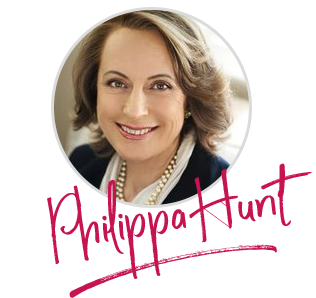Effects on Women Withdrawing Super Early amid COVID 19
Australian women who withdraw from their super early amid COVID 19 could lose as much as $120,000 in retirement
Women will retire with almost half as much super as men, may feel that they won’t have enough to live comfortably in their retirement years.
Statistics – Women Withdrawing Super Early
- A withdrawal of $20,000 during the coronavirus crisis can mean $120,000 less in retirement
- More than 600,000 have already applied to the scheme but one expert advises first looking at other options
- Australian women retire with an average of 40 per cent less superannuation than men.
Women Withdrawing Some of Their Super Early?
The Pro’s and Con’s…
If you’re under the age of 40, you’re twice as likely to access your superannuation early under the new rules, according to Industry Super Australia.
It might be the first time in your life that you are really thinking about your super.
More than 1 million Australians have already applied to dip into their retirement savings, taking out an average of $8,000 each.
Essentially women withdrawing their Super Early, is like raiding your future to help you today.
You’re missing out on the benefit of compound interest.
Women are already retiring with 40 percent less Super than men and withdrawing on super early this is going to make savings even less.
Coronavirus has affected our finances in many ways.
But while it may help you in the short term, what are the cons?
Here’s what you need to know.
Here’s what to do instead…
Women need to look at all their other options first and explore possibilities before withdrawing on their Super Early.
Access to Jobseeker, Job keeper or any other Centrelink payments and rent relief.
If you still cannot pay the rent, it’s best to negotiate with your real estate agent or landlord for a reduction.
Can you take on someone as house mate temporarily to help with living expenses.
If you’ve got a mortgage or other debts, you may be eligible for financial hardship arrangements through your bank.
Go to the banks first and do not be embarrassed to do so.
Watch your spending and pause subscriptions for a while.
Utility companies also have special arrangements for people who can’t pay their bills.
Look at transferring your credit card to over to nil interest for 6 months and save on interest there are many deals out there.
You need to think carefully about if it is your only option.
Certainly, make use of all the assistance and support and relief you can before accessing your super.
Women on Lower Income
Women, as lower-income earners are most likely to take time out and work part-time or casual, will have their retirement savings severely impacted by COVID-19.
We are seeing growing numbers of older women experiencing homelessness as women retire with limited financial resources.
Female workers in lower-paid industries including retail, education, nursing and hospitality, with many working part-time while they cared for young children or elderly parents.
Paid parental leave does not attract super, so despite women’s balances tracking similarly to men initially, balances start to diverge from about 30-32 years which is when the impacts of child-bearing kicks in.
The Gender Gap and Super
Australians males in their 50s had an average superannuation balance of $137,366, while females had a balance of $93,035, according to The Association of Superannuation Funds of Australia.
Discrepancy was partly due to the gender pay gap, which stood at 13.9 per cent in Australia.
This meant each week, on average, full-time female workers earned $242.90 less than men.
Women Already Retired
About 40 per cent of prospective retirees said they lost money during COVID-19.
77 per cent of prospective retirees do not believe superannuation will provide them with enough money in retirement.
Those nearing retirement have been particularly hurt by the downturn.
These investors tend to have more funds allocated to shares, so have a higher susceptibility to market crashes.
Typically, they are still working and need that income to build retirement savings.
Seventy-three per cent of retirees did not seek financial advice during COVID-19, with only one in five retirees feeling they had easy access to professional financial advice.
Is Financial Advice Only for “The Rich”?
37 per cent feeling that financial advisers “were for the rich”.
We have to change perceptions of financial advice among retirees and increase access to affordable advice.
The advice proposition is proven to be an integral part of providing individuals with confidence and certainty in retirement.
Sixty-eight per cent of those who were advised during COVID-19 said they are sticking to their financial plan.
That means advice is deterring people from making investment decisions based on fear or a lack of understanding.
More than two-thirds of Australia’s retirees do not believe the superannuation system will be enough to provide them with a “dignified” retirement.
General Advice Disclaimer
The information which is summarised herein does not constitute financial or other professional advice and is general in nature.
It does not take into account your specific circumstances and should not be acted on without full understanding of your current situation and future goals and objectives by a fully qualified financial advisor.
In doing so you risk making commitment to a product and/or strategy that may not be suitable to your needs.

Philippa Hunt is a Woman on a Mission.
WiseGirls Money Academy was created after working as a qualified Financial Adviser for many years and deciding it was time to assist women who desired to learn and develop the self-empowerment to understand their emotional relationship with money, the skills and knowledge to save and invest. They wanted to learn how to create their own financial future and become financially capable.
The WiseGirls Money Mission is to provide the opportunity and place for growth and development of women of all ages in personal and financial skills in a supported female environment so that they take control of their future to reach their own financial independence.




